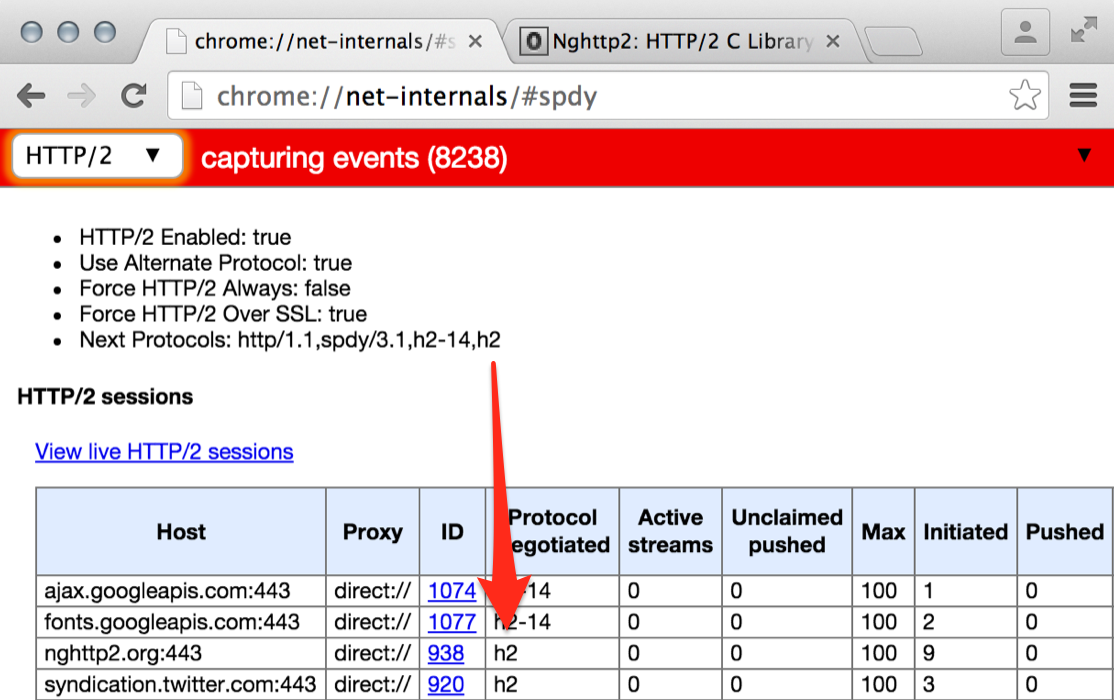Google today added HTTP/2 support to the latest Chrome Canary release. This is the final draft (referred to as “h2”).
HTTP is an application protocol that forms the foundation of data communication for the World Wide Web. It has become dated over the years, and many initiatives have attempted to speed it up.
HTTP/2, the second major version of Hypertext Transfer Protocol (HTTP) and the biggest update in years, was finalized last month. It is the first new version of the HTTP protocol since HTTP 1.1, which was standardized back in June 1999.
AI Weekly
The must-read newsletter for AI and Big Data industry written by Khari Johnson, Kyle Wiggers, and Seth Colaner.
Included with VentureBeat Insider and VentureBeat VIP memberships.
The h2 addition was first shared today by Ilya Grigorik, Web performance engineer and developer advocate at Google, by pointing to a Chrome Code Review. Here’s the full description:
Advertise HTTP/2 support.
Advertise “h2” token with ALPN and accept “h2” token in NPN. This is the final,
almost-published version of HTTP/2.Add “h2” to relevant tests.
Also add placeholder values (in comment) for drafts 16 and 17. They might be used for testing, or for collecting statistics about servers in the wild (not to be released on Stable channel though).
On February 9, Google outlined plans to adopt HTTP/2 with the release of Chrome 40. We’re already on Chrome 41, which was released earlier this month.
Confused? Let’s break it down. Chrome does support earlier versions of HTTP/2, but this is the first time the final draft has been added. That said, this is Chrome Canary we’re talking about, so there is still a long road ahead.
Google describes Canary as “the most bleeding-edge official version of Chrome and somewhat of a mix between Chrome dev and the Chromium snapshot builds.” Not all features added to Canary get added to the final version, but it’s safe to say HTTP/2 will soon show up in Chrome’s dev channel, followed eventually by the beta and stable channels.
Chrome is a little late to the party. Google was beaten to the punch last month with the release of Firefox 36, which includes full HTTP/2 support.
Mozilla plans to keep various draft levels of HTTP/2 for a few more Firefox versions and will remove them at a later time. Google will likely do the same when it pushes the final draft of HTTP/2 to the stable Chrome channel.
VentureBeat's mission is to be a digital town square for technical decision-makers to gain knowledge about transformative enterprise technology and transact. Learn More

